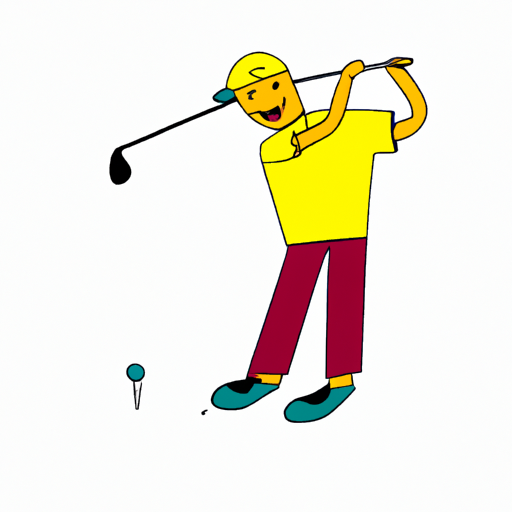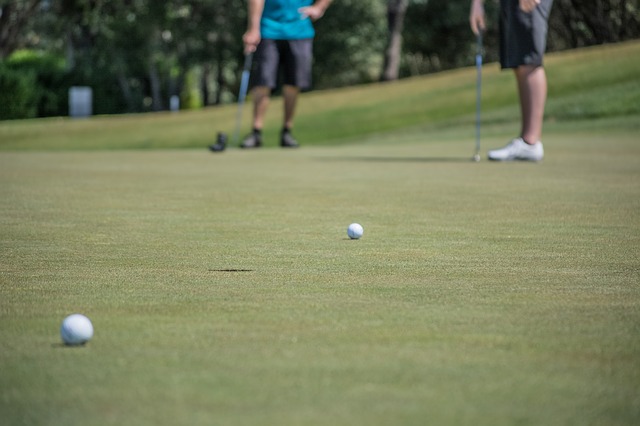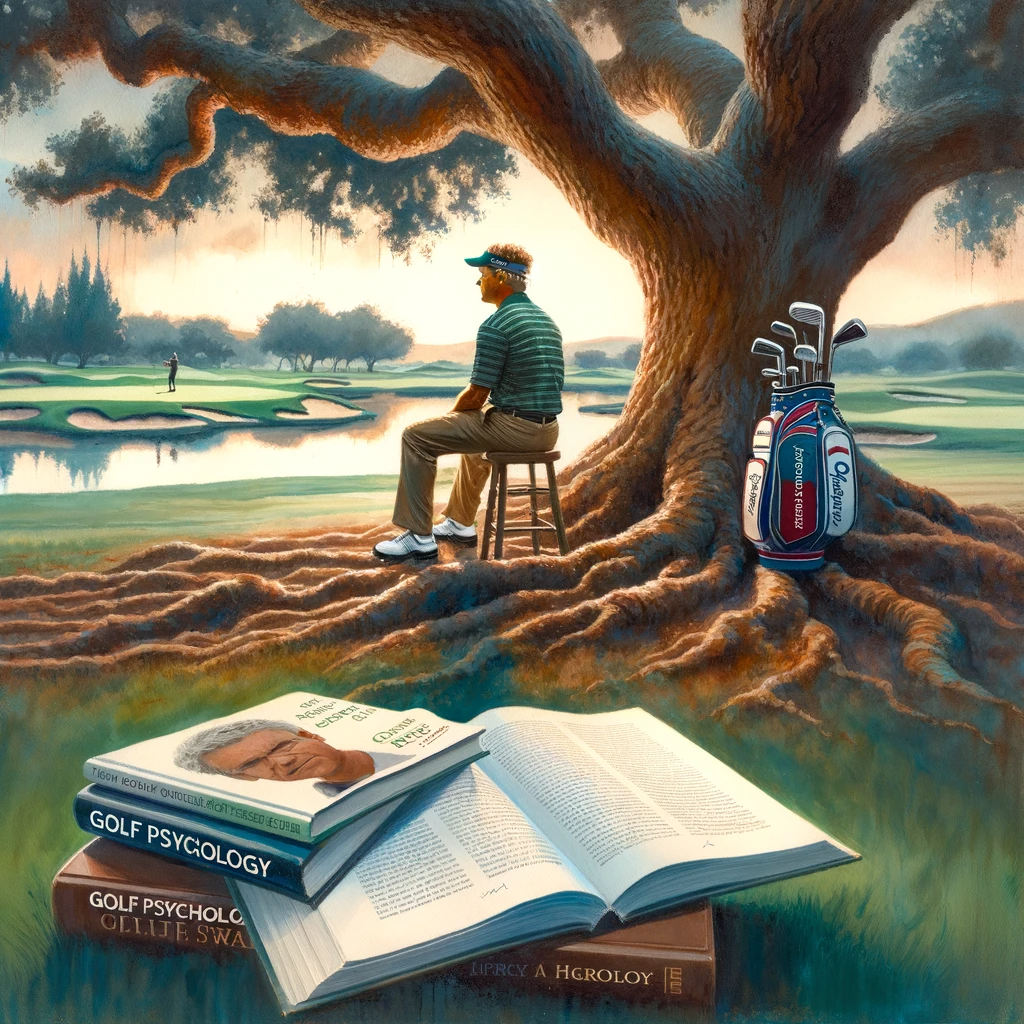- Home
- Best golf books
- Mental Golf
Golf Psychology - Improve Your Mental Golf Training And Control Your Mind Better On The Course
We’ve all experienced the mental golf side of the game when playing. We have all wished that we knew more about golf psychology and the golf mental training secrets in order to better control our mind. Golf is hard enough anyway, even without us having to fight ghosts in our head when swinging.
So, both you and me are very well aware that there is a mental side of golf. We also know that some golf mental game practice would do us good. Getting the swing working and the hazards on the course make this game challenging enough as it is.
I’ve been fighting many mental battles with myself when playing. For many years I had a thousand thoughts in my mind when standing over the ball…
- Is my grip correct?
- Remember to be on plane in backswing
- Put hands in correct angle at top of swing
- Shaft should point to imaginary target line
- Start downswing with hip, then follow with torso, shoulders, arms, hands…
- Follow through in a correct manner and finish in a balanced position
- Don’t hit the bunker guarding the green on left hand side
- And don’t hit it too long so you miss the green and the ball rolls into water
With all these thoughts in your head it’s not easy, nor fun, to play the game of golf.
I also had those few holes and certain shots on my home course that really played tricks on me, making me almost scared to hit the ball.
One example of a situation that is still vivid in my mind’s eye and that I still haven’t been able to fade out is this hole:
- A par 5
- Dogleg right over water
- To the right of water is the green for another hole
Yes, you can play the hole by shooting your first shot left to go around the water, but that won’t set you up for a good score.
So the only way to play the hole is to hit a good driver over the water. And the best way to play the hole is to hit a straight and long drive aiming the target line close to the left hand side of the other hole’s green I told you about.
And this is where my mental ghost took control of my mind big time and the only thing I could think about was…
Don’t slice the ball and hit those dudes that are on the green putting!
With that ghost in my head telling me what NOT to do and all the swing thoughts, playing golf back in those days wasn’t a breeze.
When you think about yourself I’m certain that you too can tell stories similar to mine. My guess is that you still carry some ghost on your own that you really want to get rid.
Fortunately there are simple mental tricks for golf that will help you clear the mental ghosts and leave the fairway wide open for you. We both know this, you and me, but the question remains...
How Can I Control My Mind In Golf?
There are different ways you can go when practising to improve your mental golf game. None of them are shortcuts, but they can definitely help you reach the stage where you can enjoy effortless golf in a relative short amount of time. Step by step you too can learn to play golf mentally better, just like I did and many others before me.
Here’s the first two steps I took on my journey to better control my mind in golf:
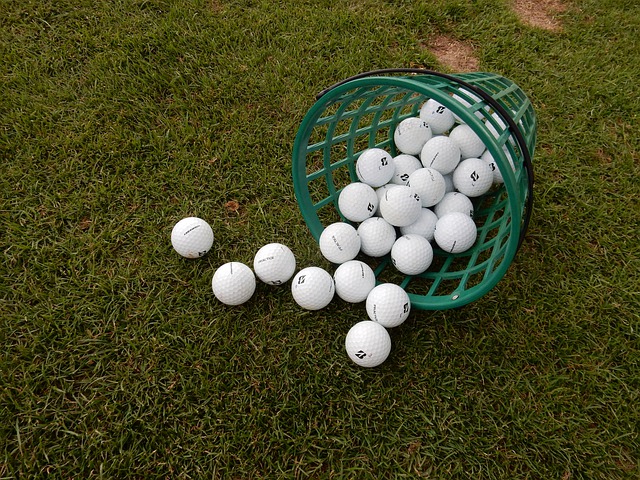
First, I practiced my swing on the range until I got a functional, somewhat proper golf swing.
What this did to me was that I could put my swing thoughts at rest when I played golf on the course. When I’m standing over the ball today, I don’t have to think about my swing. I’ve spent my time due practicing on the range.
Not having to think when I swing has eased my mind big time when playing and that was the first key for me. Now I trust my swing and I just let it happen.
Second, I turned to Rotella and his bestselling book Golf is Not a Game of Perfect. Here I received my second key.
I think you can recognize yourself in what I'm about to tell you…
- Think about that feeling you have inside you when you tee it up on first
- What’s the feeling like?
- What’s the feeling inside when you hit that first drive long and straight before the ball comes to rest in the middle of the fairway, leaving you with a nice wedge to reach the green?
- What’s the feeling inside when you hit that first drive with a huge slice before the ball comes to rest in the deep rough and you are lucky to ever find that ball again?
Which feeling do you prefer to take with you for the next 18 holes?

We both know the answer to that question.
- Does a bad first shoot mean that you have to carry the feeling associated with it for the rest of the round?
- Do you have to have that feeling when preparing for your next shot?
- Do you have to have that picture in your head of that slice out to the deep rough?
- Does it mean you are going to hit bad shots for the entire round?
Definitely not!
I’m no longer afraid of hitting a slice on that par 5 I told you about.
The second key I learned from Rotella and that has been of tremendous value to me is this…
The outcome of your shot shouldn’t determine the state of your mind. You won’t perform at your peak if you carry the feeling from that shot you sliced into the deep rough. This state of mind when playing won’t let you play the best golf you can, nor will it let you enjoy the game.
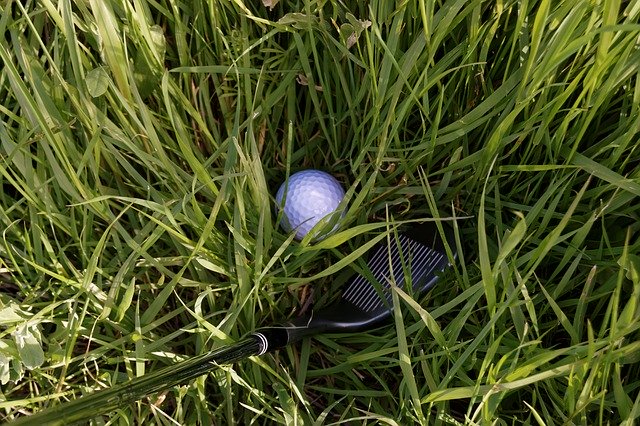
What you should do instead...
Bring that vivid happy picture and feeling from a good swing and solid strike inside you the next time you tee it up. Learn to control your mind in golf so that you always trigger that peak performance state of mind when you come to the course. Feelings can be triggered and replicated. Decide before the first tee that this is how you want to feel today during your round.
This key will make a huge difference to your game and the level of joy it brings you.
Why Is Psychology Important In Golf?
Golfers soon learn that there’s a lot of psychology in golf and we have already covered a few situations. But why is golf a mental game and how can I play golf mentally better?
Golf isn’t the easiest sport to play and it’s a game that takes a lifetime to master. Along the way you will experience both ups and downs. If you don’t learn to cope with the downs, chances are the course will eat you alive and have you throw your clubs away before you get to reap the joy of the ups.
This doesn’t answer the question why golf is such a mental game though. Some even say that 90% percent of golf is mental with some golfers arguing that the last 10% is mental as well.
Personally I don't have a strong opinion on how much is mental and how much is swing skills, but there is definitely a psychological part of the game that you must be able to handle well in order to lower your score on the course.
The nature of the game is you hitting your strokes, one at a time on a ball that is laying still on the grass. When hitting you will either feel that it’s a good shot that you are happy with, or you will feel that it’s a shot you could have hit better. Then add the pressure you put on yourself when you want to play well and the hazards on the course. Imagine all this together and there is no wonder that psychology is important in golf.
The next step I think you should take from here is to aquentaince yourself with Bob Rotella and his mental golf book Golf is Not a Game of Perfect. Who could better help you forward by removing the obstacles that are holding you back than the #1 ranked golf psychologist by Golf Digest?
Bob Rotella is a former professor at the University of Virginia and he has guided players he has worked with to 74 tour wins. He has written several of the best mental golf training books and I think the first one you should pick up is Golf Is Not a Game of Perfect. Then you can move on to some of the others after that. Players Rotella has worked with include names such as Ernie Els, Keegan Bradley, Padraig Harrington, Darren Clarke, Ray Floyd, Tom Kite and Nick Price.
One more thing that I have learnt from Rotella and that has helped me every round since:
Your mind tries to get the ball to the last location you look at before hitting your shot. Should that location be sand or water it’s no good. For me this is no longer an issue, since I've learned to focus my thought and mind’s eye to the target I decide and the outcome these days most often is satisfying.
How To Mentally Prepare For A Round Of Golf
We have all had those rounds when we are late for our tee time. No time for warm-up, straight from the parking lot to first tee. A stressed body and a stressed mind. Feeling how the back almost crack when hitting the first shot left into a fairway bunker. From there another bad shot and awkward mental state.
Pro players prepare both with the mental golf swing and a mind golf game walkthrough. This is just as natural as warming up their body before playing. By doing this and trigger that hot-streak feeling in their body and mind give them golf mental toughness that will let them play the round one stroke at a time in a well structured way.
Rotella says you should learn to enjoy the process of trying to improve. More he says that the process, and not the end result, enriches life. This is something that has touched me because it feels very natural, simple and real to me. I’ve adopted this way of thinking quickly and it helps me enjoy the game everyday. I'm very fortunate to be able to place my hands on the clubs.
How To Improve Mental Game In Golf
Most likely you already spend some time on the driving range training on your swing sequence in order to hit the ball better. The same goes for mental golf training if you want to improve the mental side of golf. The first simple step for most is to read a book like Rotella’s and from there start to change the way you think. After a while your new way of thinking will become effortless and natural for you, just like your swing.
There aren’t really any golf mental secrets, but there are ways to structure your thoughts that are better than others. By integrating golf mental game practice when you are golfing, you will soon see the rewards come to you. When it comes to this type of sport psychology coaching it can also be applied to- and benefit your everyday life, so it’s a win-win situation.
One thing you should take into your game is a sound pre-shot routine. If you want to consistently hit good shots you must have a foundation and that is your solid pre-shot routine.
A pre-shot routine could look like this:
- Create a plan for the shot
- Commit to the plan you have for the shot
- See your plan (shot trajectory) in your mind's eye
- Make sure you have that good feeling inside yourself
- One or two practise swings to get the feel, then execute
- See the result, evaluate
When creating your plan for the shot, make sure you select a specific and small target. This will help you in a tremendous way when executing the shot.

How To Improve Mental Strength In Golf
You have to fix your mental golf game if that is causing you more worries than your swing. We are all facing our own challenges and with mental conditioning you will improve your mental strength in golf in the same way as you will improve your swing with golf lessons and practice.
Put yourself out there in order to improve your mental toughness. It will pay off, because in golf mental strength and attitude always win over pure ability.
Here are few things you can start working on by yourself today to improve your mental strength:
Work on your swing till you can trust it
Then don’t think about swing technique when you play, just let it happen.
Begin to be aware of your emotions
Remember that you should always trigger those emotions from your best rounds and best shots.
Learn to stay focused
In golf you can’t have full concentration for five hours, but be focused when taking your shots. Your pre-shot routine plays a large role here.
How To Master The Mental Game Of Golf
Golf is a complex sport and I don’t really know if it’s possible to master the mental side of it. With all the pressure surrounding tour players they too are up for daily challenges, just like you and me.
But if you take action, such as reading Rotella’s Golf is Not a Game of Perfect, you will begin to change the way you think and work on your mental game. Golf psychology tips will enable you to have a better mental golf game and more fun playing.
Sports psychology coaching have taken many athletes to the next level and amateurs like us are likely to benefit even more. As Rotella says, golfing potential is mostly about your attitude and how well you think.
You probably won’t be able to master the mental game of golf, but you sure can get a huge advantage by coaching yourself to a better attitude and mental strength.
What Is The Best Golf Psychology Book
The golf mental game book I find the best and the one you should begin with is, as you understand, Golf is Not a Game of Perfect by Dr. Bob Rotella. This book is easy to read and you will enjoy the way Rotella is telling stories that are both amusing to learn about and at the same time filled with simple tips and wisdom.
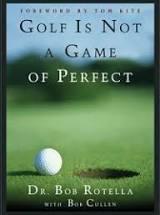
When you are through with the book it’s time for you to take action. Start deciding before you play how you’re going to think. It will make a difference to you and you will stop perceiving yourself more negatively than you deserve.
Should you not be an avid reader, the audiobook is a great choice as well. Read by Rotella himself he takes you along for an exciting ride on the mental golf course. There are many good books available, but for me this one comes out on top among all the best golf psychology books.
Make sure you learn how to become your own mental golf coach. Don’t let the mental side of golf hold you back when you are playing the game on the course. Life is too short.

